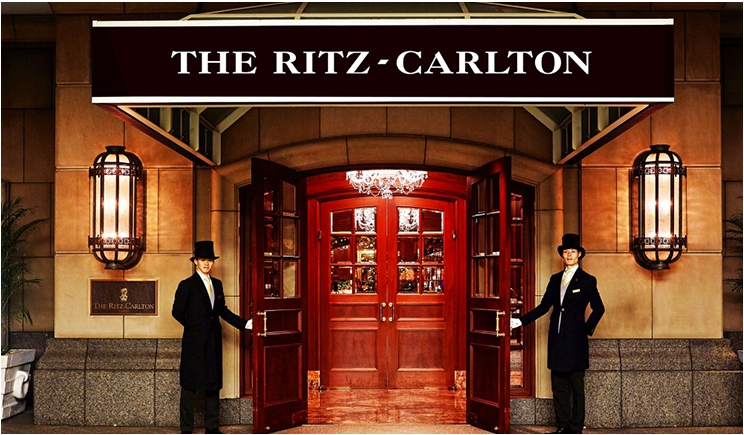
Five-star customer service is the highest level of customer service that can be offered to every patient. With it, your patients would rate you five out of five stars in their reviews every single time.
And just like any other operational system in the practice, five-star customer service must be implemented and carried out for every patient every day. It is not simply about being nice or having an aesthetically pleasant environment.
Five-star customer service is a science that has been well studied, taught in business schools, and described in many textbooks and articles. But with all this available information, why do so few businesses and dental practices provide true five-star customer service?
How Do You Measure Customer Service?
Any practice can easily implement and create a five-star customer service environment. As a project, I spent two years studying three of the finest and most respected customer service companies in the world: the Ritz-Carlton, Disney, and Nordstrom. Here are a few of my observations.
First, five-star customer service is not an accident. Five-star customer service does not occur simply because a lot of nice people work in the business. It is a highly structured approach to how every customer is treated using very specific language, techniques, and methods to ensure that they have a five-star experience.
Second, these companies work at customer service every single day. The Ritz-Carlton is a 24-hour-a-day operation with three shifts of employees. Every one of its employees has a trifold card that includes the credo of the Ritz-Carlton and its associated guiding principles. Each shift begins with a review of one of those principles, re-emphasizing the message over and over. When employees complete all the principles in the reviews, they simply begin the cycle again. This reinforces and emphasizes the expected culture.
Third, employees are empowered. At Nordstrom, any employee can accept any returned item for a refund, exchange, or credit. Even if a pair of shoes is two years old and there is some level of obvious use, the frontline salesperson can replace them or issue a credit or refund. Employees don’t have to go ask a manager. They don’t need permission. They are empowered to provide five-star customer service as an expectation.
Finally, employees are encouraged to develop a solution-oriented mentality. Whatever a customer might request, as a reasonable possibility, employees are taught to consider the best solution. If there’s a problem, it is solved. If there is a question, it is answered. If there is a request, it is handled.
By creating an expectation that employees are there to serve guests, the business creates a service-oriented mentality. The Ritz-Carlton is merely a hotel. Disney is merely a theme park. Nordstrom sells clothing and other items.
Customer service does not make the hotel bed more comfortable, the Disney ride more exciting, or the shoes fit. Customer service is that “value-added” aspect that creates an amazing experience that bonds people to you and makes them want to come back.
In the Dental Practice
So how does all of this relate to a dental practice? Five-star customer service creates a loyal patient base. When people have a better experience, especially in a dental office, they almost can’t help but tell others. This is the type of reputation you want to build, and this is the effect of true five-star customer service.
Also, dental practices that provide five-star customer service experiences are perceived to be better quality than others. Practices with five-star customer service attract more patients, keep them longer, and have higher case acceptance.
So how do you know how you were doing? One way is to measure something that the Ritz-Carlton measures: the rebooking rate. The Ritz-Carlton very carefully measures how many guests rebook for a return stay. The same can be applied to dental practices. Answer these questions:
- How many patients make their next appointment before they leave?
- How many patients, and what percentage of patients, currently do not have their next appointment booked at all?
- What is the annual attrition rate, or patients lost to the practice?
You can apply many excuses if you don’t like the answers to these questions. You could blame dental insurance and the fact that your practice does not participate in a certain plan. You could blame a bad economy and people’s hesitance to spend money. You could blame competition in the area.
But the Ritz-Carlton, Disney, and Nordstrom all have heavy competition, and yet they sustain their success year after year, decade after decade. One of the main reasons is that they have five-star customer service that creates a loyal base of customers who value the company. The products aren’t any better, but the experience is.
And people will always pay for a great experience.
Dr. Levin is the CEO and founder of Levin Group, a leading practice management consulting firm that has worked with over 30,000 practices to increase production. A recognized expert on dental practice management and marketing, he has written 67 books and more than 4,000 articles and regularly presents seminars in the United States and around the world. To contact Dr. Levin or to join the 40,000 dental professionals who receive his Practice Production Tip of the Day, visit levingroup.com or email rlevin@levingroup.com.
Related Articles
How to Prepare for Changes in Your Dental Staff
Don’t Cut All Your Expenses to Survive the Pandemic
Three Ways to Reorient Your Staff During COVID-19











